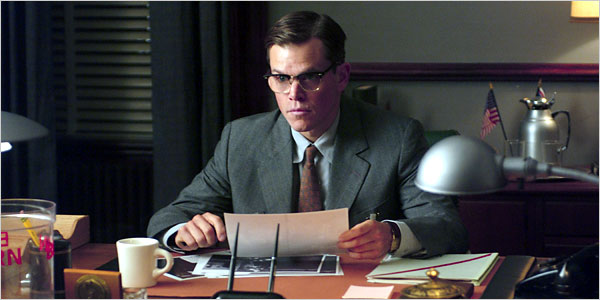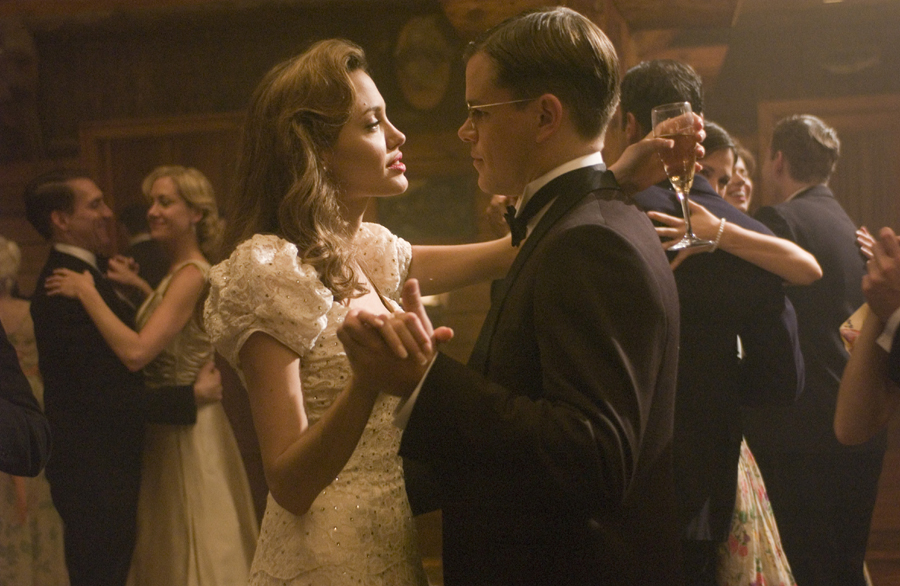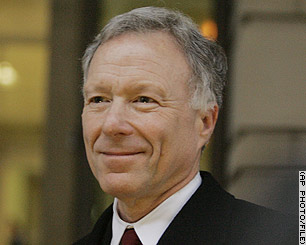“[H]ere’s a different thought experiment: How would the national debate over torture have changed if we’d known about the CIA tapes all along? How would our big terror trials and Supreme Court cases have played out? Yes, this is also a speculative enterprise, but it’s critical to understanding the extent of the CIA’s wrongdoing here.” In light of the recent revelation that the CIA destroyed video evidence of their abusive interogation procedures in 2005, well after they’d become relevant both in many different legal cases and in the national discussion about torture, Slate‘s Emily Bazelon and Dahlia Lithwick survey the wreckage the CIA has made of our legal process. “Video of hours of repetitive torture could have had a similarly significant impact — the truism about the power of images holds. If we are right about that — and we think we are — this evidence that has been destroyed would have fundamentally changed the legal and policy backdrop for the war on terror in ways we’ve only begun to figure out.” If nothing else, an independent counsel should be named immediately. Even given the criminality and contempt for the rule of law we’ve come to expect from this administration, this sort of thuggish, gangland behavior is shocking news.
Tag: CIA
Bait and Switch?
“In a series of public statements in recent months, President Bush and members of his Administration have redefined the war in Iraq, to an increasing degree, as a strategic battle between the United States and Iran…The President’s position, and its corollary — that, if many of America’s problems in Iraq are the responsibility of Tehran, then the solution to them is to confront the Iranians — have taken firm hold in the Administration.” With that in mind, and with Secretary of State Rice citing Iranian “lying” about their nuclear program, here’s one from a week or so ago: The New Yorker‘s Sy Hersh evaluates the current prospects in the administration for a war with Iran. “I was repeatedly cautioned, in interviews, that the President has yet to issue the ‘execute order’ that would be required for a military operation inside Iran, and such an order may never be issued. But there has been a significant increase in the tempo of attack planning…’They’re moving everybody to the Iran desk,’ one recently retired C.I.A. official said.”
The WMD Lie, exposed.
“On Sept. 18, 2002, CIA director George Tenet briefed President Bush in the Oval Office on top-secret intelligence that Saddam Hussein did not have weapons of mass destruction, according to two former senior CIA officers. Bush dismissed as worthless this information from the Iraqi foreign minister, a member of Saddam’s inner circle, although it turned out to be accurate in every detail. Tenet never brought it up again.” Did Dubya know for a fact that Iraq possessed no WMD prior to the March 2003 invasion of Iraq? With two CIA sources to back him up, Sidney Blumenthal says so. “‘The real tragedy is that they had a good source that they misused,’ said one of the former CIA officers. ‘The fact is there was nothing there, no threat. But Bush wanted to hear what he wanted to hear.‘”
Steel yourself, America.
In a document dump of both exhilarating and terrifying proportions, the CIA announced it will release its “family jewels” next week: close to 700 pages of documents chronicling secret Agency activity from the fifties to the seventies. (A preview of what’s to come includes reports of detentions, wiretapping, surveillance, and other sordid current administration favorites.) “CIA Director Michael Hayden on Thursday called the documents being released next week unflattering, but he added that ‘it is CIA’s history.’ ‘The documents provide a glimpse of a very different time and a very different agency,’ Hayden told a conference of historians.” Hmm, we’ll see.
It’s Official: Libby Lied.
How you like them aspens? Scooter Libby is found guilty on 4 of 5 counts of perjury and obstruction of justice in the Valerie Plame case. Sentencing is currently set for June 5th, with a max (although unlikely) penalty of roughly 25 years. Update: “‘We’re not saying that we didn’t think Mr. Libby was guilty of the things we found him guilty of,’ said the juror, Denis Collins. ‘But it seemed like he was . . . the fall guy.” One of the jurors argues that Libby seemed like a patsy for higher-ups in the Dubya administration. and prosecutor Patrick Fitzgerald seems to agree…is it time for another “accountability moment”?
Walton’s Eleven.
Grounds for a mistrial? Let’s hope not. One of the jurors in the Scooter Libby case gets kicked off the jury. “U.S. District Judge Reggie B. Walton ordered the juror removed, saying ‘what she had exposure to obviously disqualifies her.’ The judge declined to say what information the juror had seen. Walton said the remaining jurors had not been tainted. He said he would allow deliberations to continue with 11 jurors rather than calling on one of two alternate jurors.”
Libby’s Last Stand.
“‘This is something important, something he was focused on, something he was angry about,’ Fitzgerald said. ‘He had a motive to lie, and…he stole the truth from the justice system.'” The Scooter Libby case goes to the jury, and his flailing defense team doesn’t sound too confident: “‘If you’re not sure, that’s not guilty,’ said attorney Theodore Wells Jr. ‘It’s impossible to say with any degree of certainty that Mr. Libby is engaged in intentional lying.‘“
Dusty in the Wind | Wilkes (behind) Bars?
Meanwhile, the probes continue: Kyle “Dusty” Foggo, the former #3 man at CIA who was linked to Randy “Duke” Cunninhgam’s bribery operation last year, was indicted yesterday for steering CIA contracts to his GOP cronies and telling them classified information about other bidders. Also indicted, Foggo and Cunningham’s co-conspirator, Mitchell Wade‘s business associate, and GOP fundraiser Brent R. Wilkes, who, among his other alleged crimes, arranged for paid prostitutes for Cunningham as part of the bribe package. “Wilkes, a Republican Party “Pioneer” who raised more than $100,000 for President Bush’s reelection in 2004 [has also] donated — in concert with his business colleagues — $656,396 to 64 other Republican lawmakers and the national Republican Party committees in Washington from 1995 through the third quarter of 2005.“
Secrets of the Hive.

Robert De Niro’s The Good Shepherd, the first entrant in my ongoing end-of-2006 movie marathon this week, makes no secret of its Oscar-bait aspirations. Basically the WASP version of The Godfather, as told against the creation and Cold War consolidation of the CIA, Shepherd boasts a crisp look, a grand historical sweep, high-quality production values, and a stellar cast (including Best Supporting Actor-type turns strewn all over the place, like the wreckage from a better, more interesting movie.) But it’s also a film that never lets you forget how serious and sober-minded it aims to be. As such — however well-meaning and nice to look at, with all its chiaroscuro fedoras on hand — it’s also sadly a bit of a bore. Throw in an occasionally clunky script (note the particularly egregious God/CIA line near the end, for example) and some considerable miscasting issues (Matt Damon is a good actor, but is thoroughly implausible as a middle-aged man, and Angelina Jolie is too much of a star presence to be wholly believable as the ignored wife) and you have a respectable but ultimately somewhat pedestrian night at the movies. Shepherd gets the job done, I suppose, but it takes no pleasure in it.
When we first meet intelligence analyst Edward Wilson (Matt Damon), the bespectacled Everyman and titular shepherd of the film, it’s the spring of 1961, the Bay of Pigs invasion has just gone FUBAR, and America’s new president is looking for a few heads to roll over at Langley. In this middle of this spate of job anxiety, Wilson is mysteriously sent a photo and audioreel of a couple in the throes of passion, seemingly somewhere in the Third World. As he sets to work on deciphering this arcane message, Wilson’s thoughts wander all the way back to 1939, when he — a young, idealistic student of poetry at Yale — was recruited first by the infamous Order of Skull and Bones (a.k.a. preppy fratboys gone wild) and then, after war breaks out in Europe, by the OSS. Along the way, he takes on a number of varied mentors, ranging from a Nazi-sympathizing poetry professor with then-shocking proclivities (Michael Gambon) to a congenial if hobbled general and spymaster (De Niro, playing a variation on Wild Bill Donovan) to a gaggle of fellow scions of the WASP Old Boy Network (representing the Eli’s, William Hurt and Lee Pace; representing the Oxford-Cambridge crowd, Billy Crudup with a slipping accent.) He also falls in love, with a (note the symbolism!) kindly, open-hearted deaf co-ed (Tammy Blanchard), and falls, in lust, with a needy, easy, and borderline-psycho socialite (Angelina Jolie, verging on typecasting in a terribly written role, but still quite good.) As the years drag on and the world freezes into Cold War, Wilson finds himself not only engaged in high-stakes cloak-and-dagger gamesmanship against his Soviet counterpart, codenamed Ulysses (Oleg Stefan), but inexorably ceding more of his dreams, his morality, his family, and his very soul to that hungering bastion of the Eastern Establishment mafia, the Central Intelligence Agency. And every time he tries to get out, they keep pulling him back in…
Comparisons to The Godfather are probably as unfair as they are inescapable. Still, for all the striving and sweating on display here, Edward Wilson is ultimately no Michael Corleone. In fact, Damon, while trying admirably, can’t plausibly sustain the second “middle-aged” half of the film, and portrays Wilson as too much of a blank (clearly De Niro’s decision) to garner much in the way of sympathy or empathy. More resonant in The Good Shepherd are many of the supporting turns, particularly Gambon, John Turturro as Wilson’s tough-talking (non-WASP) #2, and Alec Baldwin in a minor role as a hard-living G-man. But they’re not enough to put Shepherd over the top, and for every vignette in the film that contains real emotional power — most notably the interrogation of defector “Valentin Mironov” (Mark Ivanir) — there are two that, through a combination of directorial straining and an overly intrusive score, spill over into overcooked blandness. (See for example, the plane and letter-burning sequences at the end of the film, both of which are carried for several beats too long and which suffer from paint-by-numbers swelling strings on the soundtrack.) The Good Shepherd is by no means a bad film, but, alas, it’s not particularly a good one either. Like a veteran CIA hand, it fades effortlessly into the background, and offers little that might be considered truly memorable.

A Bad Year.
“Whenever the courts push back against the administration’s unsupportable constitutional ideas…the Bush response is to repeat the same chorus louder: Every detainee is the worst of the worst; every action taken is legal, necessary, and secret. No mistakes, no apologies. No nuance, no regrets. This legal and intellectual intractability can create the illusion that we are standing on the same constitutional ground we stood upon in 2001, even as that ground is sliding away under our feet.” Slate‘s Dahlia Lithwick surveys the top ten most outrageous civil liberties violations of 2006.

